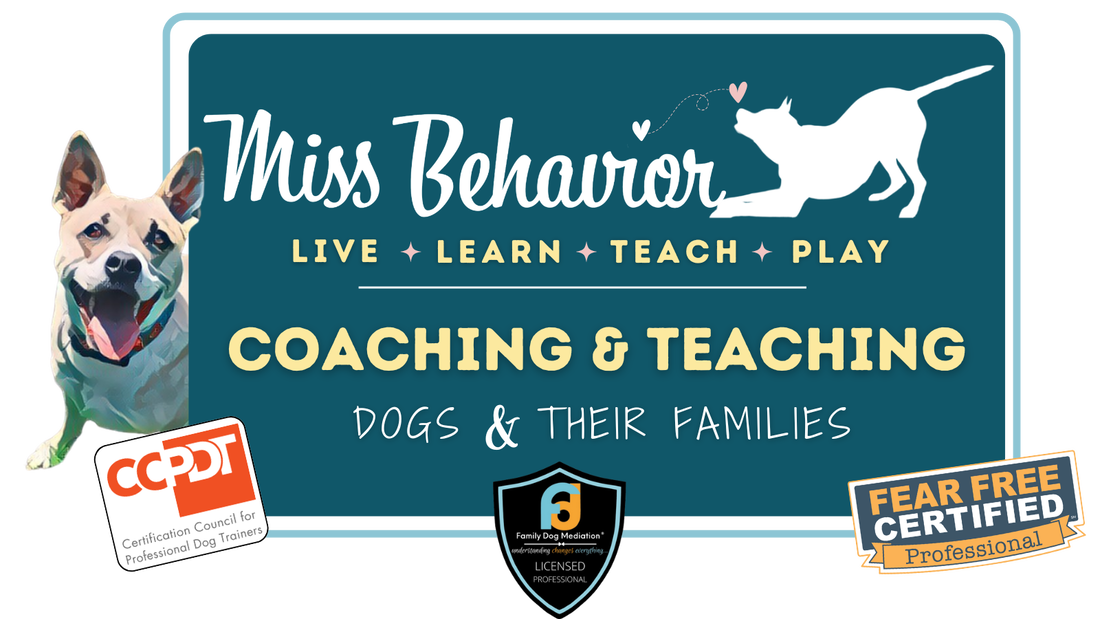Do you know why your dog ignores you?You know those times when you have somewhere to be and you need to call your dog to come inside but he just takes his time responding? Or maybe he even plays a little game of keep-away at the most inconvenient time? It happens to everyone! There are many reasons why your dog might ignore you or get distracted by something else but all those reasons can be pretty easily summed up into 5 main categories. This will help you better understand how to start to work on the problem so that you can start getting better attention from your family dog! 1. He's too emotional to focus He's too emotional He's too emotional Something in the environment might be worrying your dog and he can't focus on what you're asking. It could be a dog barking in the distance, the garage door opening, a loud truck going down the street, the train going by the house a mile away. It doesn't matter whether the sound seems like something that SHOULD be worrying your dog. What mater is whether the distraction is something that IS worrying your dog. It's important to address the emotions in your dog first before you can truly expect your dog to be able to pay attention to you when you say his name, when you call him to come, when to tell him to stop jumping, whatever it is. Training games like "Take a Peek" or "Look at That" where you are reinforcing your dog for calmly looking at the trigger can be really helpful for teaching your dog how to appropriately interact with the distraction in the environment and then come back to you. I also love to teach dogs the "Find it Game" as a low-pressure way to be able to listen without having to focus. It allows him to use instincts, which are much more likely to kick in sooner during stressful situations than his ability to focus on what you're saying. I wrote a post a while back about triggers and desensitization that you just might find helpful! 2. Your body language isn't communicating clearly Communication isn't clear Communication isn't clear You might verbally be asking for one thing but non-verbally saying another. Be sure your verbal and non-verbal communication matches. Often, our dogs are speaking to us through their body language, letting us know that we aren't being clear or that they are confused by what we're asking. They say this through calming signals and displacement signals (such as yawning, sudden scratching, sudden sniffing, avoiding eye contact, etc). If you want to learn more about specific body language communication, I have more information on this Body Language Blog Post. What's most important is that you are reading your dog's signals and also that your own non-verbal and verbal body language matches. This means that if you are calling your dog to come to you, you should be leaning away from your dog or moving away from your dog, not towards him. Moving into your dog's space non-verbally tells them to move away from you while you are verbally trying to say the opposite of that. When you lean away from a jumping dog (to understandably brace yourself), you are inviting him into your space. See where this matters? 3. He has been reinforced for not listening in the past It works It works Our dogs are really good at reading our moods, our tone, and our intentions. They also do what works. So, if your dog has unintentionally been reinforced in the past for not listening because life was too busy and you weren't able to follow through or you've been so frustrated that it was just easier for you to go get a treat and lure him instead, it would make sense that our dogs would continue to do that in the future. This is where good management is essential and also where mindset plays a massive role. If you know you're going to have to head off to work soon and you also know that your dog has a tendency to not want to come inside from the yard when you ask, letting him off leash into the yard before you have to go into work is setting up a situation that is very likely to allow him to practice the exact behavior you are trying to stop him from doing. That's where mindset might come in. Setting an alarm to get up 5 minutes earlier so you can take him out on leash would likely work more in your favor. It's important to set good expectations around our normal day to day life but it's also important not to set ourselves and our dogs up for failure. Start thinking pro-actively about how you might be able to get ahead of your dogs misbehavior. Don't let him practice what you don't want to see more of. Raising a dog is often 80% management and 20% training! Don't feel guilty about that. That's normal. There are a lot of mindset shifts that are important to normalize in raising a dog. I wrote about that in this Blog Post about 5 things all dog moms need to hear. Check it out if you're ever feeling guilty about anything in raising your dog. 4. He's not sure what you're asking He's confused He's confused Your dog may not actually have the knowledge necessary to achieve the task. Be sure you have intentionally taught the skills needed. This is a big one and one that often gets pushed aside under the assumption that our dogs KNOW how to sit so they must be able to respond in any circumstance. Or our dogs KNOW not to jump so why des he keep jumping on me when there are new people around? Or maybe you deal with the other side... why does he always only jump on Uncle Bob? Why does he always beg from Grandpa? Why is it that when I tell him to get DOWN, he doesn't get off the couch? Well, does your dog have the skill and knowledge needed to perform each of those tasks? Think about your cue. What does it mean? What does DOWN mean? Does it mean "Belly on the ground or "Four paws on the floor?" What does OFF mean? What do you expect your dog to do instead of begging from Grandpa? Replacing problem behaviors with established skills and clear expectations is the fastest way to replace one problem behavior with an alternative behavior. Check out my blog post on 7 Rules to Skill Building for more guidance on the general rules to follow whenever you are trying to teach your dog a new skill or clean up an old one. 5. The problem is deeper than just lack of attention It's a deeper problem It's a deeper problem Sometimes our dogs need to have specific behavior problems broken down in a way that pulls out where they problem actually lies. Our dogs are often smarter than we are prepared for and sometimes that means it's time to create a plan around their needs, their experiences, and your lifestyle and goals. It's okay to ask for help when needed. Our dogs are living, breathing, learning creatures with individual personalities, needs, and drives. You don't know what you don't know. It can be helpful to have someone in your corner who can help show you the blind spots and who can help break down where things might be breaking down in your dog's behavior or your relationship with you dog. Please don't hesitate to seek out assistance. Don't let pride, time, money, or lack of resources be the barrier between the life you're currently living with your dog and the life you've imagined. There are many resources out there for you. Some are free, some are low cost, some are high cost but I know there is something for everyone. Some are DIY, some have ongoing group support, some have individual support. I encourage you to reach out for help. Here are some resources to start with: Canine Homeschooler Academy: Supporting you and your dog in your journey to nurture, train, and raise a great family dog! On-Demand Courses Find a Trainer How to Choose a Trainer Comment below and let me know which of the 5 reasons your dog isn't listening sounds like it fits your dog! Ready to change it?
|
|
- Home
- About
- Blog
- Services
- Membership
-
Courses & Freebies
- All Courses
- FREE Boredom Buster Recipes
- COURSE: Building Resilience in your Family Dog
- COURSE: Managing the Leash Walk
- Potty Training COURSE
- Paws Off COURSE
- COURSE: Managing the Leash Walk
- FREE Attention Building Challenge
- FREE Scratchboard Training
- FREE Rest and Recovery Round-Up
- FREE Body Language 101
- Contact
Search by typing & pressing enter





 RSS Feed
RSS Feed





